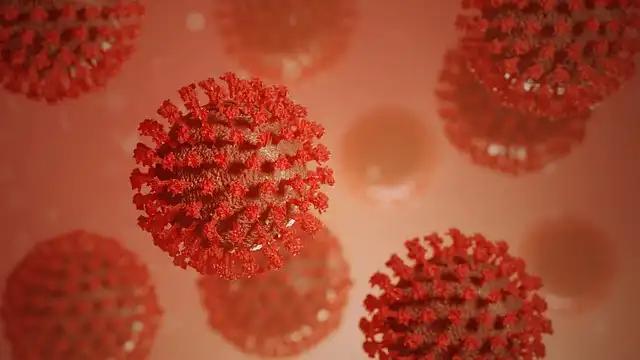Study Suggests Lower Transmission Risk from COVID-19 Reinfection
- Normal Liver Cells Found to Promote Cancer Metastasis to the Liver
- Nearly 80% Complete Remission: Breakthrough in ADC Anti-Tumor Treatment
- Vaccination Against Common Diseases May Prevent Dementia!
- New Alzheimer’s Disease (AD) Diagnosis and Staging Criteria
- Breakthrough in Alzheimer’s Disease: New Nasal Spray Halts Cognitive Decline by Targeting Toxic Protein
- Can the Tap Water at the Paris Olympics be Drunk Directly?
Study Suggests Lower Transmission Risk from COVID-19 Reinfection
- Should China be held legally responsible for the US’s $18 trillion COVID losses?
- CT Radiation Exposure Linked to Blood Cancer in Children and Adolescents
- FDA has mandated a top-level black box warning for all marketed CAR-T therapies
- Can people with high blood pressure eat peanuts?
- What is the difference between dopamine and dobutamine?
- How long can the patient live after heart stent surgery?
Study Suggests Lower Transmission Risk from COVID-19 Reinfection
When individuals with a history of COVID-19 are reinfected, there may be a reduced risk of transmitting the virus to others, according to findings compiled by a team from the Japan National Institute of Infectious Diseases and Nagoya University.
The research team revealed that reinfected individuals can rapidly produce immune substances in their bodies that diminish the infectivity of proliferating viruses, making it less likely to transmit the virus to others even when expelled from the body.

The correlation between the early production of these immune substances and a shorter virus shedding period was elucidated for the first time through analysis using human samples.
The research team focused on “secretory antibodies,” substances produced on the mucosal surface of the nasal cavity. These antibodies, a type produced by immune cells, efficiently eliminate harmful foreign substances entering the body through the nasal mucosa.
While the passage of the virus through the nasal mucosa was known to have some effect when the virus proliferates in the body of an infected individual and exits, the details were previously unclear.
To investigate, data on 122 individuals infected with the Omicron variant in the country were used to examine the secretion of antibodies and the duration of virus shedding.
The results showed that in individuals who were infected for the first time without vaccination, it took an average of 10.4 days for the secretion of antibodies to exceed a certain level, whereas in reinfection cases, this period was shortened to 5.2 days.
Regarding the duration of shedding infectious viruses, first-time infected individuals took an average of 9 days from infection, while reinfection cases reduced it to 5.9 days.
In contrast, for vaccinated individuals experiencing their first infection, the period for the secretion of antibodies to surpass a certain level was shorter, averaging 8.6 days from infection, compared to those without vaccination for the first infection. However, the shedding period was similar, with an average of 8.4 days.
The research team explained, “Current COVID-19 vaccines are highly effective in preventing severe cases, but reducing the duration of shedding infectious viruses is challenging.
To prepare for the emergence of unknown infectious diseases, developing vaccines that efficiently produce secretory antibodies could help suppress outbreaks early.”
The findings were published on the 19th in the Proceedings of the National Academy of Sciences (PNAS).
Study Suggests Lower Transmission Risk from COVID-19 Reinfection
Reference:
https://news.yahoo.co.jp/articles/b9faa2946b3208f9b3837610435c545badf8f74d
(source:internet, reference only)
Disclaimer of medicaltrend.org
Important Note: The information provided is for informational purposes only and should not be considered as medical advice.



